
November 21, 2023 | 9:19 pm
Table of Contents
As we get closer to the end of the year, businesses must organize their finances and aim to
start 2024 right proactively. By learning different small business finance tips, you can
build on good habits and best practices that ensure the business’s growth and success for
the following year.
Why is it essential to get your small business in order as you approach the new year? The
answer lies in the numerous benefits it brings to your small business.
First and foremost, it allows for a comprehensive assessment of your financial health. Doing
so enables small business owners to identify areas that need improvement and potential
growth areas.
By organizing your finances, you gain a clearer understanding of your cash flow, expenses,
and revenue, which in turn helps make informed decisions.
Moreover, early financial planning sets the stage for effective budgeting, tax preparation,
and strategic investments, which can significantly impact your bottom line.
With the proper financial groundwork, your business will be better equipped to navigate
challenges and seize opportunities in the year ahead. Discover nine invaluable finance tips
your small business can implement to kickstart a prosperous 2024.
How to improve your small business finances for 2024?
Business owners shouldn’t wait until January to prepare for 2024. Even before 2023 ends, setting your plans and strategies for the following year is essential. Here are some small business finance tips:

Review financial statements
Before setting any new financial plans for the next year, you need to assess the health of your business first by reviewing the three critical financial statements:
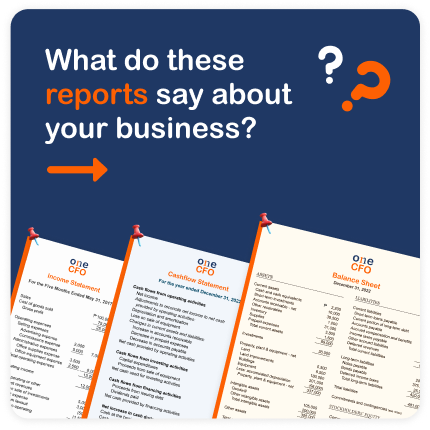
Income statement: An income statement, or profit & loss statement, shows all the business’s income and expenses in a period. This document gives you a snapshot of the company’s operations in terms of revenue and spending.
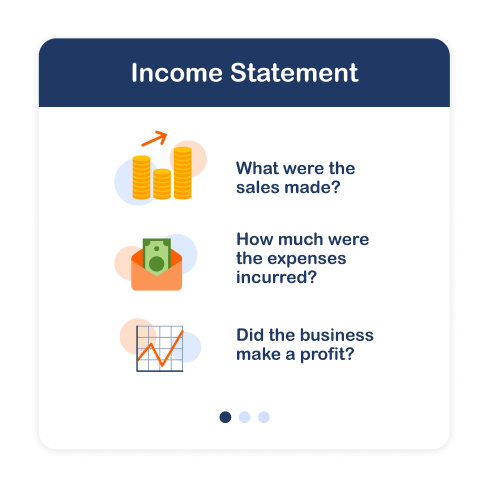
Balance sheet: A balance sheet summarizes the company’s assets, liabilities, and shareholder equity in a period. In short, this financial statement shows how much the business currently owns and owes.
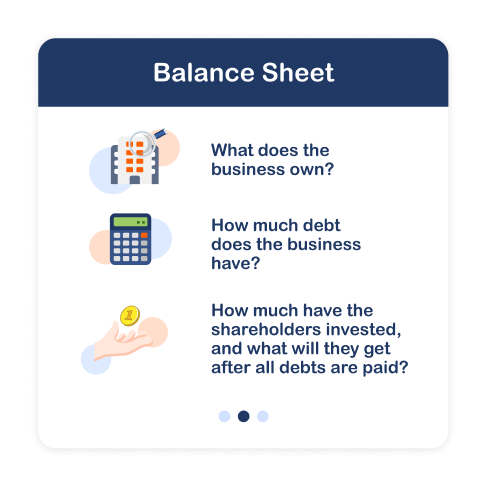
Cash flow statement: Lastly, a cash flow statement or CFS provides data on the business’s cash flow or how much money is coming in and out at a given period. The CFS helps business owners assess their cash position and liquidity.
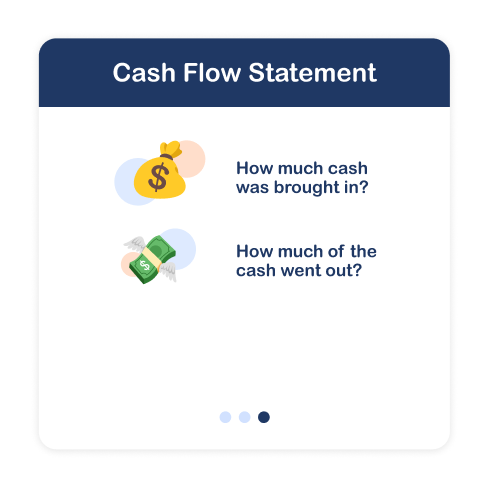
Preparing and reviewing all the key financial statements can help business owners make the
right decisions for the following year.
Does the company have extra money to make more investments? Is there a need to adjust next
year’s budget? Your financial statements can answer these questions and more.
Set new financial goals
Aside from checking the financial statements, it’s also crucial for the business to review
its financial goals for the current year and set new goals for the next one.
Check the current financial goals individually and see if you’ve achieved them. In the areas
where the company fell short, you should investigate what went wrong and how you can fix it
in the coming year.
Knowing what worked and didn’t can help formulate your new financial goals and strategies.
Short-term vs. long-term financial goals
It’s also best to set both short-term and long-term goals. The long-term goal can be the
same as the previous years’ and will provide the business’ main direction.
Meanwhile, short-term goals aim to break down the long-term goal into smaller steps so you
can work through it bit by bit.
Setting financial goals, like increasing
business profitability, helps the company stick to
a plan and work together for a desired outcome.
One tip when setting financial goals is to be SMART - specific, measurable, attainable,
relevant, and time-bound. This framework ensures your goals remain realistic and aligned
with the company’s vision.
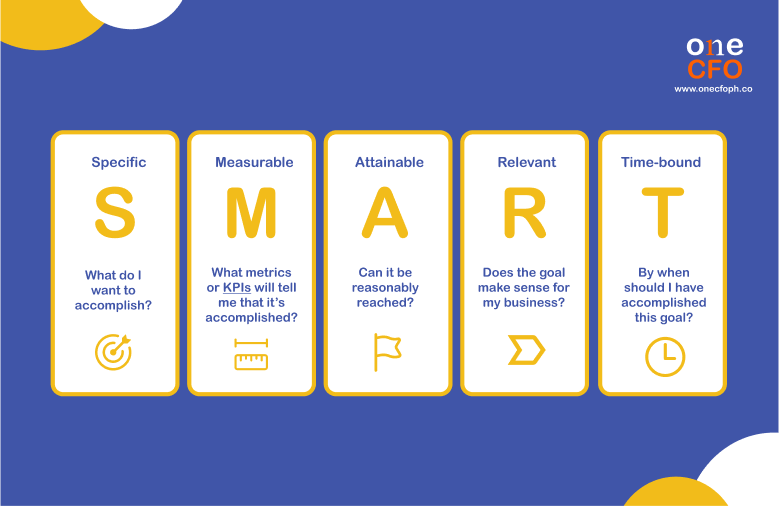
Formulate new business plans
Once you have your new financial goals, it’s time to collaborate with the team and translate
these goals into detailed action plans.
For example, if the business aims to increase its market reach for the next year, its
business plan could be to launch extensive marketing campaigns every quarter. You can
outline the needed steps, identify staffing requirements, and set a timeline.
Formulating business plans early helps avoid cramming the steps to achieve them. For
instance, applying for business loans can take more than a month, so you’ll need to
process
them before the year ends to use the money immediately for next year.
Also, create a system to track progress when executing the new business plans. You can do
this by setting regular meetings for each department to share what they accomplished or by
creating a simple tracker in a project management tool to monitor
progress remotely.
Employ cost-reduction strategies
It’s always good practice to monitor costs and lower expenses when possible.
Reducing
business costs and increasing revenue is an effective growth strategy for businesses.
One of the common cost-reduction strategies is ensuring you have the best supplier possible
in terms of price and quality.
It’s best to shop around yearly and see if your current supplier can still meet your
business needs. You may also negotiate with them for better deals, especially if you already
have a long-standing relationship with the supplier.
What is the difference between overhead expenses and operating expenses?
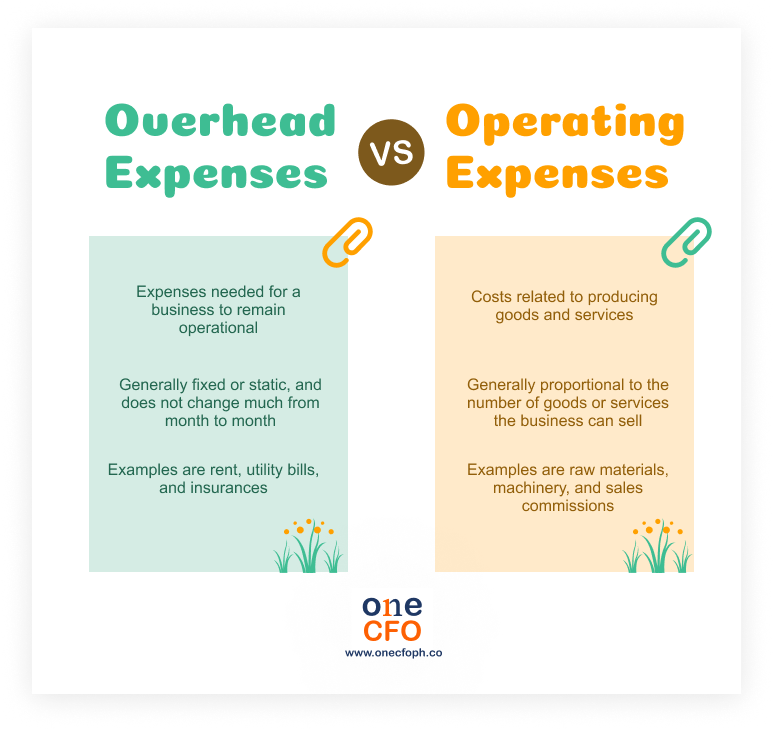
Knowing the difference between overhead and operating expenses allows businesses to identify
specific areas for cost reduction.
Operating expenses are a business's
variable costs in producing specific products or
services. These expenses fluctuate depending on the volume of goods produced or services
rendered.
Whereas overhead expenses, often called indirect costs, are
the steady support for your
business and are typically incurred regardless of variations in production or sales.
As these expenses affect the bottom line, small business owners must look for ways to reduce
these expenses.
For example, if overhead expenses are high, look for opportunities to streamline some
business processes.
One way is to automate bookkeeping processes to
streamline finance operations. Not only can
you save more money, but you also improve the efficiency of the business.
Businesses can also outsource functions like accounting or marketing to agencies to save
money on hiring full-time employees. By outsourcing, companies can also get quality service
only at a fraction of the price.
Plan for growth
It might sound ironic, but in business, you need to “spend money to make more money.” This
quote simply means that growing the company will require investments and resources you must
plan for.
From your business plan, list all the significant investments you plan to make next year
that will contribute to the company’s growth. Examples are purchasing new equipment,
increasing the workforce, or acquiring properties for expansion.
While these investments can eventually increase revenue, you still need money to buy them.
Unless you have a big pile of cash, you should look for funding options like getting a bank
loan or raising money from investors.
Apart from having the money, business owners should also consider when it’s best to make
such investments. For example, it might be best to hire new employees when the company has
the resources to onboard and train them properly and when it consistently earns a positive
cash flow.
Update annual budget
Updating the annual budget is another best practice in preparing for a new business year.
Budgets are simply a spending plan
that shows what business expenditures the company can
afford based on their income or resources.
Setting annual budgets is crucial for businesses to plan for the coming year properly. Watch
this video for more in-depth tips on preparing your annual budget.
One thing to remember about budgets is that they’re intricately linked with the business’s
goals and plans.
Your financial goals and plans can dictate how much funding you need. But at the same time,
the budget you set can also restrict how big your business goals should be.
When creating a budget, it’s crucial to consider both worst-case and best-case scenarios to
ensure the business can be flexible for any changes. It’s also best to consult with other
executives or managers to have a more accurate estimate of how much the budget should be for
each department.
Moreover, don’t forget to add a buffer to the budget for emergencies or unexpected expenses
during the year.
Manage credit wisely
Growing your business requires significant funding, so many companies take out loans to
expand their venture further. And if you want to go the same path, you must have excellent
business credit.
Business credit reflects the company’s ability to borrow money or creditworthiness. Banks
assess business credit to see if a business can repay the money it borrows or if the banks
can trust the company enough to lend it money.
One of the ways you can improve your credit standing is by always paying existing loans on
time. Doing so builds trust with financing institutions that you’re responsible for paying
your dues.
Another good practice is keeping business
and personal finances separate using separate bank
accounts or a business credit card. Not only does this help build your business credit, but
it also becomes easier for the bank to assess your company’s cash flow and finances when
you’re applying for loans.
Organize your taxes
The end of the year also signals the need to prepare for tax filings. Even though the
deadline for the annual income tax return (ITR) is still on April 15 next year, it’s always
helpful to start organizing early.
Aside from being compliant, paying the proper taxes is also beneficial for loan applications
since the ITR serves as the business’s proof of income.
Take the time to meet with a tax accountant to ensure you’re updated with all the relevant
tax regulations.
Consulting an accountant also ensures you get the best advice for optimizing your tax
payments. Your business can take advantage of numerous tax deductions to lower your taxable
income.
Some examples of expenses you can use as deductions are utility expenses, government
contributions, and benefits. Even entertainment expenses, like Christmas parties, can also
be used as a tax deduction!
Watch this video about the nine tax deductions to learn how to save more money on your
taxes.
Take professional advice
Small business owners take on many things on their plate. Aside from managing finances, they
also need to think about other functions like operations, sales, and the overall future
growth of the company.
One way to help business owners run their companies more smoothly is by hiring or
outsourcing professionals who can handle some of their business functions - especially
finance!
A professional accountant or bookkeeper can help the business track its cash flow better and
ensure all its finances are in order.
Small businesses may outsource a CFO to get more high-level advice
regarding tax planning
and business growth.
Outsourcing financial management matters to finance professionals may seem like an expense
initially. Still, outsourcing will become an investment in the long run as it helps you
improve your finance management, grow the business, and save money through strategies.
Start 2024 right
By practicing the small business finance tips listed, you can start the next year stronger
and build a good foundation for a successful business!
As you establish these best practices and navigate the new year, finding the right finance
partner for you can go well beyond in bringing your business to greater heights.
OneCFO, your
partner in growth, can provide you with
excellent and reliable bookkeeping, tax
planning, payroll, and CFO services.
Visit us at onecfoph.co or contact us at [email protected] to
learn how we can help you with
your budgeting, forecasting, and finance strategies.
Our team of hands-on professionals is well-equipped to manage the technicalities of business
finances and provide valuable insights and expertise on navigating 2024 right.
Read our disclaimer here.